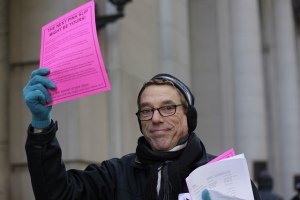A report was released by the Partnership for a New American Economy this week, documenting the damage that H-1B denials has incurred on U.S. cities and U.S. born workers. In “Closing Economic Windows: How H-1B Visa Denials Cost U.S.-Born Tech Workers Jobs and Wages During the Great Recession,” (available here) that trend is documented poignantly in the tech fields.
H-1B Visas Causes Firms to Go Overseas
It is estimated up to 120,000 jobs are available each year in tech fields. Only 51,000 American graduates are trained to meet that opening, as only 45% of STEM degrees issued at research intensive universities in the United States are obtained by US born graduates. That widening chasm has forced employers in the sector to recruit foreign graduates, but the difficulty of obtaining their H-1B visas has caused some firms to move operations overseas. For example, Microsoft opted to open a Vancouver office with 400 tech jobs. Smaller firms have felt the pressure acutely and have responded similarly.

Credit: @timothykrause – Flickr
The H-1B visa is critical for foreign workers seeking to ply their craft in the United States. It is frequently issued to computer programmers and health care professionals, as well as to workers throughout the STEM (Science, Technology, Engineering, and Mathematics) field generally. However, it is far from being a panacea to solving labor shortages in those arenas because the quota of H-1B visas that are issued per year lag far behind business needs. The number was augmented to correspond with the tech boom of the late 1990s, but it has reverted from a peak of 195,000 per year in 2003 to 65,000 per year in 2004. It has remained at that incongruous 65,000 (with an exemption) cap since, despite the increasingly vocal urgency of employers. In 2014, for the second year in a row, the number of H-1B applications received in the first week of April far exceeded the number of available H-1B visas for the entire year.
H-1B Visa Fears
A common fear is that increasing the number of H-1B visas to foreigners will lead to wage depression and loss of job opportunity for American-born workers. However, the report authored by Americans for a Renewed Economy rebuts those notions by showing H-1B visa denials have injured American born workers’ wages and job prospects. By examining H-1B visa denials in 2007-2008 and their aftermath in 236 cities, the report shows that those denials hampered job creation and wage growth for American-born computer specialists, college graduates, and non-college workers. American workers lacking a college degree were the most injured by the recession in 2007 and 2008. The growth of jobs for non-college educated U.S.-born slowed down by 7.1% every time a city experienced a 1% “shock” in the available supply of computer workers. The report points to surrounding jobs eliminated as a result of tech jobs being unfulfilled, such as human resources, sales, operations, and management.
Improving the American Immigration System
The Partnership for a New American Economy was formed by Michael Bloomberg and Rupert Murdoch for the purpose of improving the American immigration system. Its chairmen include some of the most prominent businessmen and mayors in the United States. The businessmen include Microsoft CEO Steve Ballmer, Bill Marriot, Disney CEO Bob Iger, and Boeing CEO Jim McNerney. The mayors include San Antonio’s Julian Castro and Philadelphia’s Michael Nutter.
Schedule A Consultation
To schedule your consultation with a Pittsburgh Immigration Attorney today, click here…